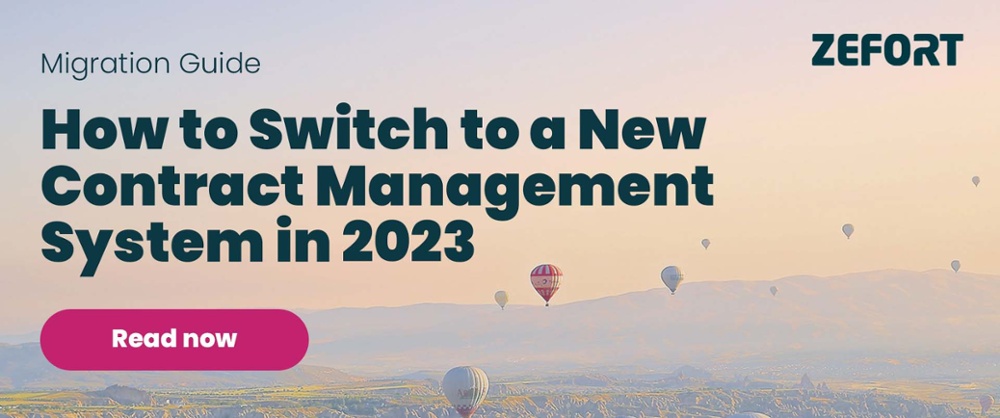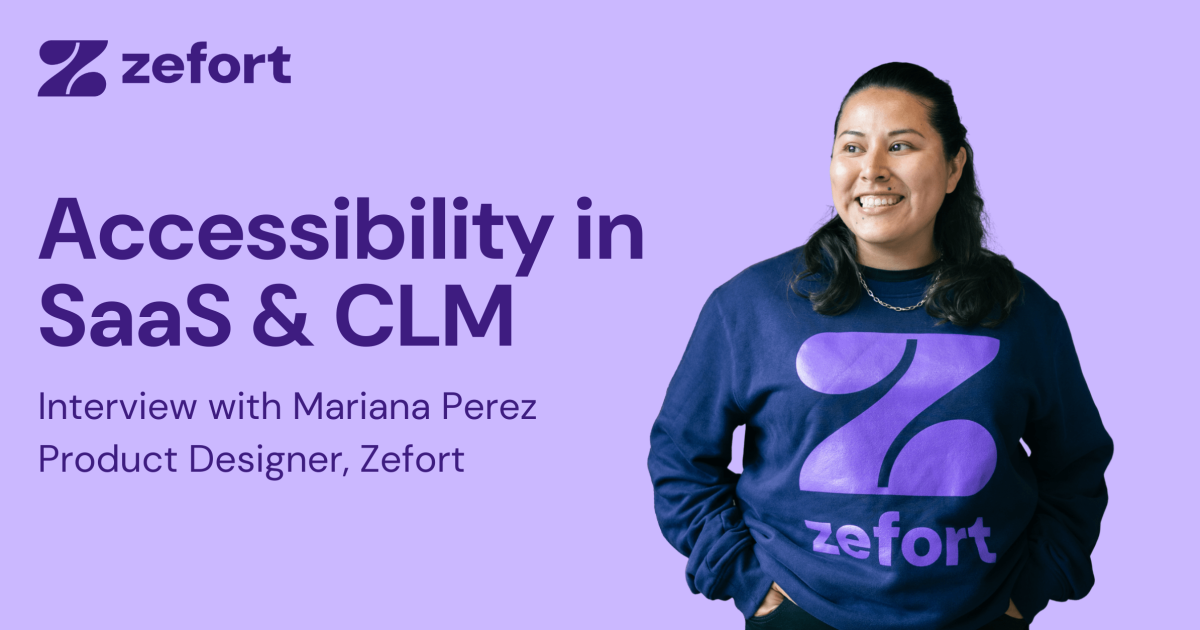8 essential questions to consider when choosing a new contract management solution
Are you planning to upgrade your contract management system? Not sure how to evaluate the various options in the market? Here’s a helper – here are the most important questions you should consider to evaluate and rank potential solutions. Let’s dive right in!
#1 – Does the solution have the right features?
Many contract management solutions boast a huge amount of various features. However, start with the basics that are relevant to your current process: make sure you can do all the things you want with ease and confidence.
Is it easy to upload contracts? Can you find them quickly? What about sharing documents with your team?
Once you know the basics are there, move on to the advanced stuff. Does the solution allow you to automate routines with AI processing? Can you automate reminders of important tasks or dates? Is the tool flexible enough to support changes in your processes?
#2 – Is it cost-efficient?
A new contract management solution can very well lower your costs, especially if you can replace multiple tools (such as a separate signing tool) with one system.
However, remember to review the licensing model: can you flexibly add more users to the system based on your needs without breaking the bank?
#3 – Is the solution secure?
Absolute information security is a must-have in a modern contract management solution. Contracts are confidential documents that should only be accessible by just the right persons.
There are many aspects to security:
- Is the data encrypted and who has access to it?
- Is data properly backed up?
- Where is the data physically stored and is it passed between the US and Europe?
- Is the solution compliant with GDPR?
- Does the service provider have any information security certifications, such as ISO 27001?
- Does the solution provide sufficient logging features for auditing, for example?
To get started, review the security information the solution provides and look for relevant certifications on information security. Don’t hesitate to contact the service provider if you have any questions.
#4 – Can you utilize electronic signatures?
Signing documents online has become the new normal. Make sure your future contract management tool either has sufficient integration options to popular eSign services or comes with a built-in digital signing service.
If the solution includes a signing service, make sure it matches your needs. For example, in the EU, the solution should meet the eIDAS regulation requirements and come with market-specific digital verification options, such as bank ID verification.
#5 – How easy is it to use?
Today, usability and user experience has become essential also in business tools. And it makes perfect sense – an intuitive tool that is easy to learn results in increased productivity and boosts user motivation.
You can evaluate the user experience of a product by requesting a demo or by reading up on customer testimonials and references online. We highly recommend trying out the solution for yourself – that free trial is there for a reason!
#6 – How easy is it to get started?
What would it take to get the new solution running and what kinds of resources would it need from you? Circling back to ease of use, would your team need training for the new system or does it provide sufficient self-study onboarding materials?
A modern contract management system works from the cloud and comes with little-to-no pre-configuration work. This means that you don’t have to schedule and allocate resources for internal IT installation and configuration projects – ideally, you could be up and running as quickly as you want.
#7 – What kinds of integration options are available?
A good contract management tool should support your processes and easily connect with other tools you use. At the bare minimum, look for ready-made integration options with leading eSignature tools to automate data flow from signing to archiving.
For larger enterprises, look for API access and developer support to enable integration with practically any external system.
#8 – Are you free to move on if necessary?
In case you want to move on to a different contract management solution in the future, you should ensure that you can get all your data easily from the previous system. Do not choose a service that plans to keep your data hostage.
What’s more, the data provided to you should come in a structured format to help your migration to the next solution. This means that you’ll be able to move both contracts and their metadata to the new system efficiently, for example.
Read next: Migration Guide – How to Switch to a New Contract Management System in 2023





